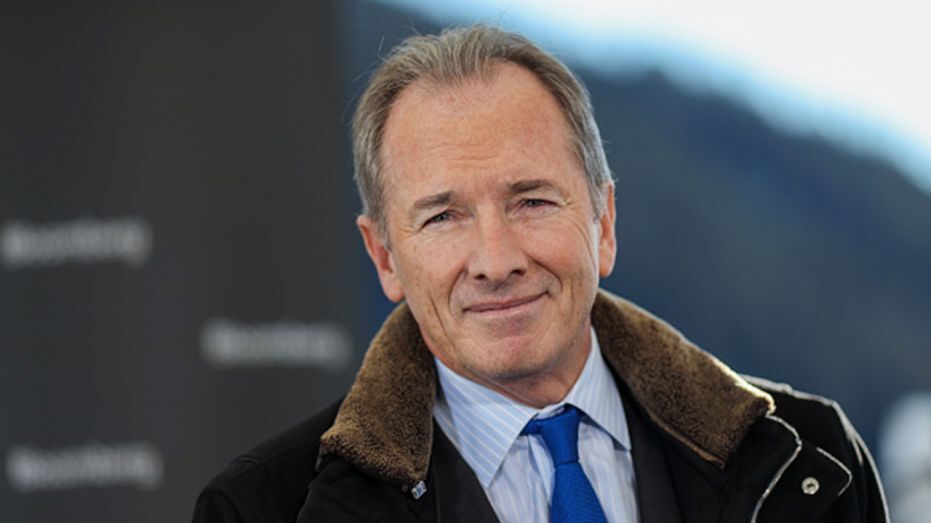Fox Business Flash top headlines are here. Check out what’s clicking on FoxBusiness.com.
Get all the latest news on coronavirus and more delivered daily to your inbox. Sign up here.
Continue Reading Below
Morgan Stanley Chief Executive Officer James Gorman warned that the bank would take “longer to achieve” its medium-term financial targets due to the coronavirus crisis, after its first-quarter profit slumped by 30%.
In January, just before the virus started spreading around the world, Gorman boosted the bank’s performance targets and set new goals for cost-cutting, returns on equity and wealth management profits over the next two years and beyond.
In the weeks that followed, the pandemic forced sweeping lockdowns, shuttered businesses, left millions jobless and raised fears of a severe recession, prompting Wall Street banks to set aside billions to cover for potential losses.
GET FOX BUSINESS ON THE GO BY CLICKING HERE
Morgan Stanley said the current economic crisis will push its targets out of its reach and a long-drawn-out crisis could adversely affect its business in the coming quarters.
“As long as the duration and scale of the pandemic and economic slowdown remain uncertain, I expect markets will continue to be fragile. The resulting stress on the global economy is real and will take time to recover,” Gorman said on a call.
The bank’s results capped a tumultuous quarter of earnings reports from big U.S. lenders, which reported sharp declines in profit and boosted their reserves in anticipation of a wave of loan defaults and non-payment of credit card bills.
MORGAN STANLEY PROFIT SINKS 30% UNDER CORONAVIRUS PRESSURE
Morgan Stanley reported a below-target return on tangible common equity in the first quarter, and Gorman cautioned that the bank probably will not meet its previous goals in the next quarter.
“It would be irresponsible of me to recommit to those targets on this call. Those targets are not achievable in the second quarter, they weren’t achievable in the first quarter,” said Gorman, who recently recovered from the illness caused by the novel coronavirus.

Morgan Stanley CEO James Gorman. Photographer: Simon Dawson/Bloomberg via Getty Images
Morgan Stanley differs from most of the other big six U.S. banks because it does not have a large book of consumer loans and credit card business like JPMorgan Chase, or significant balance sheet investments like those of rival Goldman Sachs.
That business mix appeared to work in its favor, as it did not have to set aside massive loan loss provisions.
Its robust performance in trading mirrored a similar showing from bigger rivals Goldman Sachs and JPMorgan, both of which clocked double-digit growth in equities and bond trading.
BofA JOINS RIVALS WITH $3.6B BUFFER FROM CORONAVIRUS LOAN DEFAULTS
Trading revenue at Morgan Stanley surged 30%, boosted by wild swings in markets. This was led by a 29% jump in bond trading and a 20% rise in equities trading.
However, revenue at Morgan Stanley’s wealth management unit, which contributes roughly half to its total revenue, fell 8% to $4.04 billion, as it bore the brunt of the ongoing turmoil in financial markets.
Advisory revenue fell 11% as dealmaking took a beating in the quarter, with businesses bracing for a massive slowdown in the coming months.
Stocks in this Article
Morgan Stanley’s $13 billion deal to buy discount brokerage E*Trade Financial Corp also coincided with the spread of the coronavirus, forcing management to justify the buyout to investors. The company said it was on track to close the deal in the fourth quarter.
Investment management revenue at Morgan Stanley fell 14% to $692 million, hurt by valuation mark-downs on its investment portfolio and lower interest on loans.
The bank said earnings attributable to common shareholders fell to $1.59 billion, or $1.01 per share, in the first quarter ended March 31. Analysts had estimated $1.14 per share, according to IBES data from Refinitiv.


